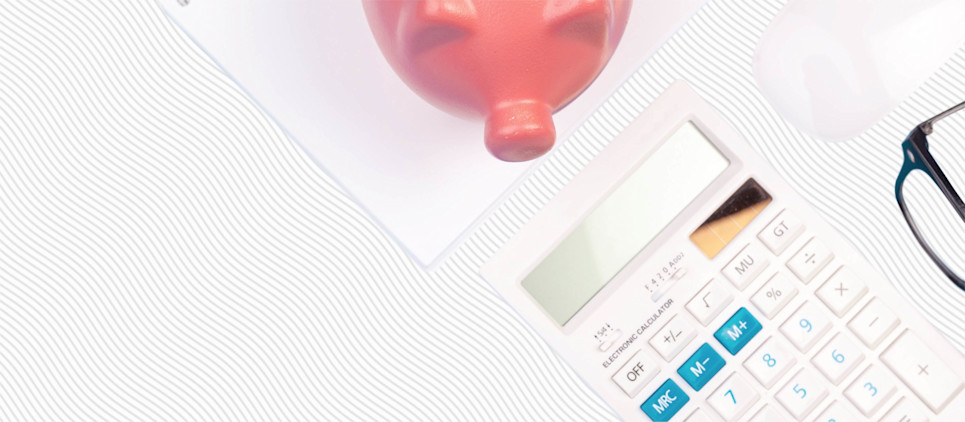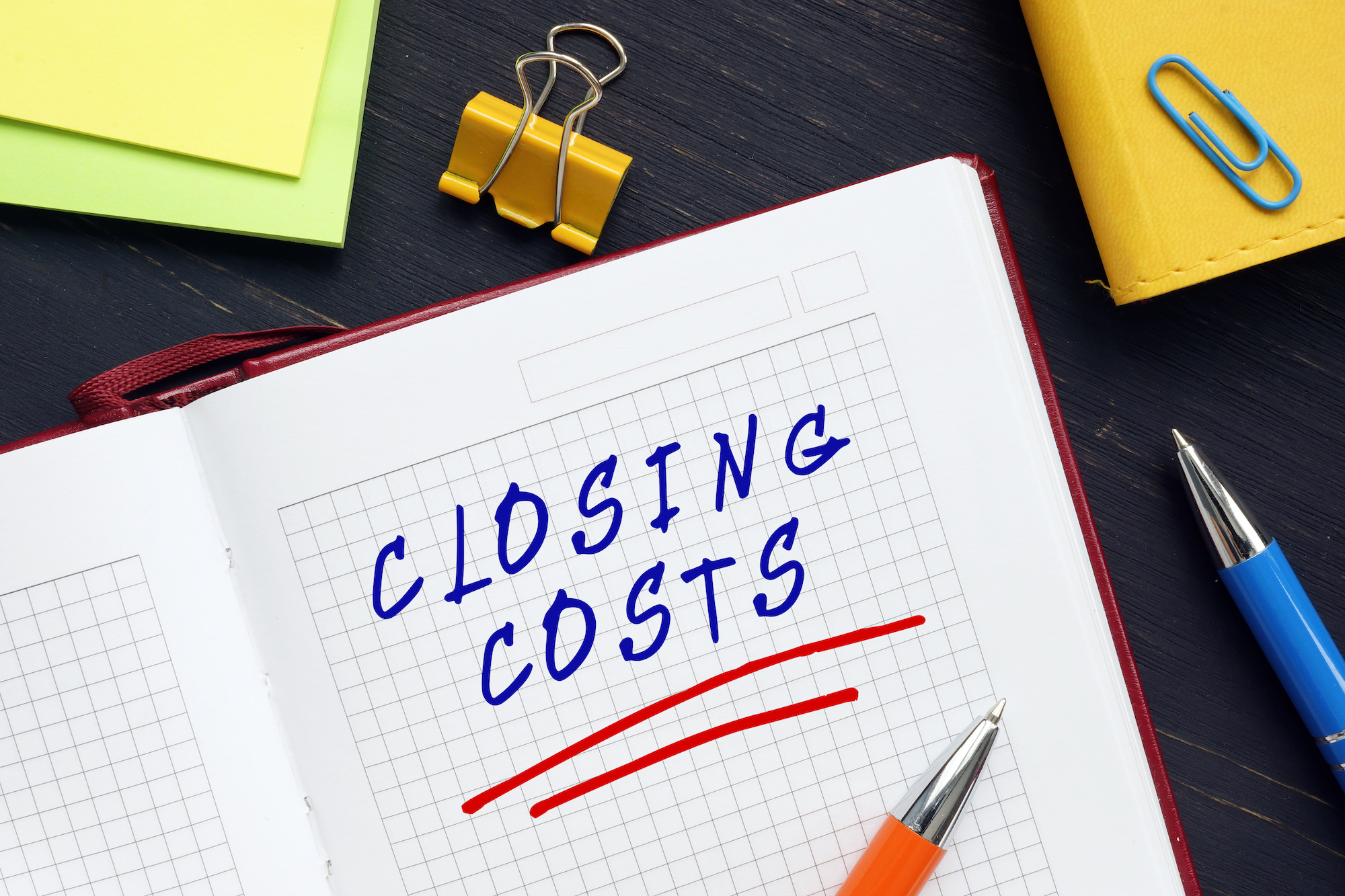Get to know closing costs before you buy a home
If you’re interested in buying an investment property, there are a few costs you should know about beforehand that aren’t included in your down payment. It’s essential to include closing costs—which include taxes, insurance, and various fees—in your budget from the beginning of your property search.

Table of contents
What are closing costs and what’s included? How much should you expect to spend?What are closing costs and what’s included?
Closing costs are the additional expenses and fees you (the buyer) is expected to pay when you purchase a home. They can run anywhere from 2% to 5% of the total cost of your home. If you buy with cash, you’ll still pay closing costs, but they’ll likely be lower than if you buy with financing.
Closing costs can include property taxes, mortgage insurance, attorney fees, and more. Once you submit a mortgage application, your lender is required by law under the Real Estate Settlement Procedures Act (RESPA) to provide you with a Loan Estimate (LE). A Loan Estimate is an important document that lists the details of your mortgage, including the type, amount, term of the loan, and a breakdown of closing costs.
Loan costs
Loan costs are expenses associated with applying for and securing a loan.
Loan origination fee: This fee covers the cost of processing and underwriting your loan. It typically ranges from 0.5–1% of the total cost of your loan. Origination fees are negotiable as they’re a part of your lender’s profit strategy. The larger the loan, the more leverage you have. Pro tip: Ask the lender upfront (before you receive an LE) what the origination fees are and make sure you get their response in writing.
Application fee: Some lenders may charge a nonrefundable application fee to process your loan request. This amount varies from lender to lender but can cost up to $500.
Assumption fee: If you decide to assume or take over a mortgage (agree to the current terms, including the current balance, rate, and payment), you may be charged an assumption fee. Assumption fees may vary by state but are usually less than $1,000.
Prepaid interest: This is the amount of interest that’s owed between the loan signing and your first monthly payment. Prepaid interest or interim interest is a standard, upfront fee that’s included in most closing costs.
Underwriting fee: Some lenders may charge an underwriting fee to cover the cost of the underwriter or staff who analyzes your documentation and loan application.
Credit report fee: Whenever you apply for a loan, the lender will pull your credit. This fee ($15 to $30) goes to the credit agency that provides the lender with your credit history.
First year’s mortgage insurance: If you’re making a down payment that’s less than 20% of the purchase price, you may need to pay for mortgage insurance. If you get a conventional loan, the lender may ask that you get private mortgage insurance (PMI). Mortgage insurance protects the lender: If you fall behind in payments, you may get a negative hit on your credit score and could possibly lose your home through foreclosure.
Property costs
Property costs are associated with services related to the property itself. Standard property costs include the appraisal fee, home inspection fee, and the property tax.
Appraisal fee: This fee is paid to the professional property appraisal company that assesses the home’s market value to determine your loan-to-value (LTV) ratio. Appraisal fees can range anywhere from $400 to $500.
Home inspection: According to the U.S. Department of Housing and Urban Development, the average home inspection costs around $300 to $400. During the inspection, the inspector will check the grounds for septic issues, the exterior for rot or decay, and the roof for shingle problems, among other things.
Property tax (due within 60 days of purchase): Property tax is the fee that you pay to your local government in exchange for a public service (i.e. roadways, fire departments, public schools, etc.). The property tax on a house is required within 60 days of purchase. Rates are based on the value of your home and vary state to state.
Survey fee: The survey fee covers the cost of verifying and confirming your property lines before closing. This fee can range from $300 to $950. If you’re buying a home that’s on a stretch of land, expect to pay more.
Pest inspection: In addition to a home inspection, you may be required to get a pest inspection before you close on your loan. (This rule varies state to state.) The average pest inspection costs $100. In some cases, this inspection may be covered by the seller or the lender.
Lead paint inspection: In addition to the home inspection and the pest inspection, you’ll also be required to pay for a lead inspection (especially if the home you’re buying was built before 1979). According to Home Advisor, lead testing can cost up to $300.
Title costs
When you purchase a home, you’ll be expected to cover title service fees. Title service fees may include the title search fee and the premium for the lender’s title insurance policy, among other costs.
Lender’s title insurance: Lender’s title insurance is separate from owner’s title insurance. Its purpose is to repay the bank just in case you lose your home to a title claim. Lender’s title insurance can cost up to $875.
Owner’s title insurance: Title insurance isn’t required, but it can help when you’re in a pinch. Title insurance has your back just in case the previous owner or contractor tries to say that they have a claim against the house.
Title search fee: This fee will either go to a title insurance company or a real estate attorney, depending on where your home is located. Title search fees can range from $200 to $400.
Transfer tax: Transfer tax is paid to your local government in exchange for updating the title of a home and transferring it to you. This fee varies from state to state.
Other costs
This isn’t an exhaustive list of costs, but it does include some of the most common fees you’ll be expected to pay. Here are a few more fees to watch out for:
Homeowner’s insurance: Most lenders require you to prepay at least one year’s premium at closing. This is because lenders need proof that your home is insured. This fee can cost up to $1,000 or more depending on your home’s location and value.
Recording fee: This fee is determined by your county and can cost anywhere from $20 to $250.
HOA transfer fee: The homeowners association transfer fee covers the cost of transferring the HOA fees from the seller to you. This fee will depend on your HOA’s policies. If you bought a home without an HOA, you don’t have to worry about this fee.
Escrow fee: Escrow fees are paid to the title company or directly to the escrow company. These fees can vary from state to state and depend on the purchase price of your home. (Escrow accounts basically keep your money safe.) Most sellers will cover 50% of the escrow fee.

How much should you expect to spend?
Let’s say you take out a conventional loan worth $300,000, you’ll be expected to pay between $9,000 to $18,000 in closing costs. However, you can negotiate with the seller to help you cover your closing costs. This is known as a “seller concession.”
How much you spend when it’s time to pay closing costs will vary depending on what the lender charges. Here are some common loan types and their associated closing costs:
Conventional loans: Closing costs average 3–6% of the loan amount.
VA loans: Department of Veterans’ Affairs (VA) loan closing costs can average anywhere from 3–5% of the loan amount.
FHA loans: Federal Housing Administration (FHA) closing costs can average anywhere from 2–6% of the loan amount.
USDA loans: US Department of Agriculture (USDA) closing costs can average anywhere from 3–6% of the loan amount.
You’ll get a breakdown of some costs when you apply for your mortgage (in the Loan Estimate) and again in the Closing Disclosure document right before you settle on your home. That’s your final opportunity to ask questions, negotiate any costs you want the seller to pay (if you’re in a seller’s market, and make sure you’re prepared to pay in full.).
Bungalow is the best way to invest and manage your real estate portfolio. We work with you to identify, purchase, fill, and manage residential properties—so that you can enjoy up to 20% more in rental income with a lot less stress. Learn more about Bungalow.
Ready to find your next home?
Move-in ready homes and a built-in community so you can feel at home, together — wherever you are.
Suggested articles



